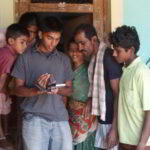
We began as a project of Microsoft Research to test if there is a role for technology in small-scale agricultural systems. We partnered with our first NGO partner, Green Foundation, which became the basis for our name Digital Green.
Digital Green was founded on the belief that technology can accelerate efforts to end poverty. Since then, our technology-enabled approach has reached over 1.9 million of the india’s poorest people. And we’re just getting started.

We began as a project of Microsoft Research to test if there is a role for technology in small-scale agricultural systems. We partnered with our first NGO partner, Green Foundation, which became the basis for our name Digital Green.

We became an independent non-profit, the first non-profit spin-off from Microsoft Research. Our peer-reviewed paper showed that our approach improved the speed and effectiveness of extension systems by 10 times per dollar spent.

The first official Digital Green team came together at a boot camp in India. We got our first grant from the Bill & Melinda Gates Foundation.

We set up our office in Delhi and additional offices in several state capitals across India. CoCo and analytics dashboards were created to track farmer feedback and usage data across time and space.
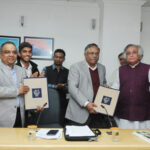
We reached our first 60,000 farmers across India in partnership with NGOs. From this work, we linked up with the Government of India’s National Rural Livelihoods Mission. We expanded our work to address health and nutrition issues.
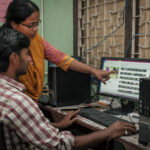
We launched our remote/virtual Training Courseware platform for training extension workers.
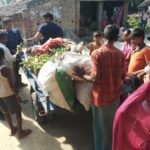
We sourced innovative ideas from across our team during our first “Think Week”. This leads us to identify the need to more efficiently enable farmers to access markets. Our shared transport-to-market service, Loop, is born.
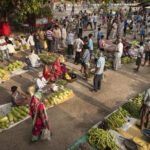
We developed our first 5-year strategy, revised our values and underwent a design makeover. With the new strategy we started to align our past experience and the new course we had begun to chart towards a future with ‘big data’ in Agriculture.

We created and launched our first iteration of FarmStack with support from Walmart Foundation among cashew farmers in Andhra Pradesh. FarmStack is an open source interoperable data platform to enable organizations and farmers to solve difficult problems in the agriculture ecosystem.
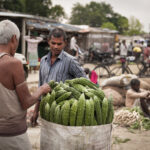
The COVID-19 pandemic accelerated the launch of our fully virtual and live training program for extension agents. We also started scaling up other innovative ways of reaching farmers, including through chatbots and social media platforms with a special focus on helping them access customers via digital platforms.
